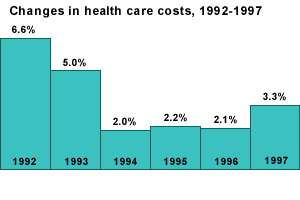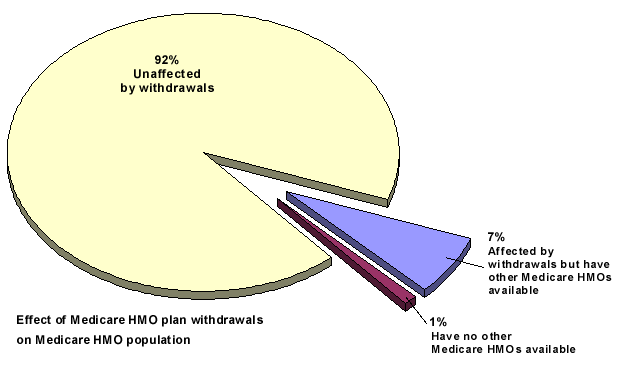
Fam Pract Manag. 1998;5(10):23-26
GAO: Don't expect HCFA to be ready for year 2000
In a late-September report, the General Accounting Office (GAO) says it's “highly unlikely” that Medicare's computer systems will be year 2000 (Y2K) compliant in time for the agency to provide uninterrupted benefits and services into 2000. The GAO points out that HCFA's Y2K compliance efforts are severely behind schedule. The report also questions whether HCFA's target of June 20, 1999, for developing and testing a claims-processing contingency plan leaves sufficient time for implementing the plan if it's needed on Jan. 1, 2000.
HCFA maintains it will meet its compliance deadlines. Administrator Nancy-Ann Min DeParle says the agency is “doing whatever it takes and devoting whatever resources are necessary to make sure Medicare claims are paid promptly” after Jan. 1, 2000, including establishing a “war room” where officials will monitor HCFA's progress on Y2K compliance.
The millennium bug is only one of several challenges facing HCFA. Simultaneously, the agency is struggling to implement Medicare+Choice, the Children's Health Insurance Program and the 1996 Health Insurance Portability and Accountability Act — as well as running Medicare and Medicaid.
More health plans refuse to release HEDIS results
The National Committee for Quality Assurance (NCQA) disclosed recently that 158 health plans that made their HEDIS results public last year refused to do so this year. NCQA called this a “disturbing development” and a “disappointing turnaround in the general trend toward greater accountability in health care.”
The comments were made as NCQA released its second annual State of Managed Care Quality report and Quality Compass 1998, the national database of health plan performance results on which the report is based. NCQA attributed the lackluster participation in part to business losses suffered by lower-performing plans last year and said health plans that publicly report their HEDIS data outperform those that don't across all performance measures.
The State of Managed Care Quality report concluded that the industry's overall performance on HEDIS measures for 1998 was essentially unchanged from last year.
Quote. Endquote.
“The public thinks the key to high-quality care is quick access to a doctor. That's only half. The other half is what the doctor does. It's amazing how we've ignored that.”
Michael Millenson, a health care consultant with the William M. Mercer firm.
Health care costs see modest increase
Amid warnings of sky-rocketing health care costs, a recent study has found that health care costs grew just 3.3 percent between 1996 and 1997, with similar increases expected for 1998. In the early 90s, health care costs were growing as much as 6.6 percent, hitting a low of 2 percent in 1994.
The study, conducted by Paul Ginsburg, president of Health System Change, and Jon Gabel, director of KPMG Peat Marwick's Center for Survey Research, also shows that, contrary to analysts' recent predictions of five- to seven-percent increases, employer-based health insurance premiums grew 3.3 percent in 1998. Premium increases ranged from 2.9 percent for HMOs and point of service plans to 3.8 percent for preferred provider organizations.
The study has good news for health care consumers: Employee contributions to health insurance premiums have been declining over the past three years, and out-of-pocket spending has dropped as well. “These low trends in out-of-pocket spending may be attributable to rapid shifts from conventional coverage to managed care,” says Ginsburg.
The study is based on data from KPMG Peat Marwick, Milliman & Robertson and the U.S. Labor Department and appears in the September/October 1998 issue of Health Affairs.

Dozens of plans leave Medicare HMO market
As of mid-October, 43 health care plans offering Medicare HMOs have declined to offer these products again in 1999, and 53 more are reducing their service areas, HCFA reports. Their decisions will mean coverage changes for more than 444,000 Medicare beneficiaries, of whom about 48,000 live in counties that will be left with no managed Medicare option.
The plans submitted their 1999 benefit and rate packages to HCFA in May but then asked for permission to increase rates or revise benefits because of unexpectedly high costs and low Medicare payments in 1998. HCFA declined the plans' request in early October, which led the plans to withdraw from Medicare for next year. The plans leaving the program or reducing their areas serve more than 370 counties in 28 states and the District of Columbia.
In response, the Clinton administration has pledged to expedite approvals of plans seeking to enter markets without Medicare HMOs, inform beneficiaries of their rights to move into the fee-for-service program and introduce legislation to protect beneficiaries from future plan withdrawals.
McGinley L. Medicare officials refuse to let HMOs cut benefits or raise costs for seniors. The Wall Street Journal. Oct. 2, 1998:B–6.

First PSO in is first to leave
Florida Hospital Premier Care, the first Medicare provider-sponsored organization (PSO) to begin enrolling members has notified HCFA that it will shut its doors on Dec. 31. Premier Care was one of eight PSOs launched under the Medicare+Choice pilot program just two years ago.
According to hospital executives, the PSO was facing insurmountable financial losses. The PSO found that its elderly patient base was sicker and required more expensive treatments and longer hospital stays than had been anticipated, and low government reimbursements also contributed to the problem.
“We underestimated the costs, we overestimated the payments we would get from the government and we overestimated our ability to reduce costs,” said Rich Reiner, president of the hospital's managed care division.
Lundine S. Hospital pilot project flops. Orlando Business Journal. Oct. 12, 1998.
Quote. Endquote.
“... Generally accepted principles of professional medical practice place little constraint on the everyday practice of medicine ... and cannot serve effectively as the policy basis for defining medical necessity or appropriateness.”
John Wennberg, MD, arguing for evidence-based medicine in a briefing with Capitol Hill aides on a proposed patients' bill of rights, which would have prevented health plans from interfering with the treatment decisions of physicians based on “generally accepted principles of professional medical practice.” Wennberg is the Dartmouth Medical School professor whose pioneering research into regional variation in health care is documented in the Dartmouth Atlas.
Wennberg warns against ‘medical appropriateness’ based on conventional medicine. Medicine & Health newsletter. Washington, DC: Faulkner & Gray. 1998;52(37):3.
Preventive services task force reconvenes; three FPs on board
The U.S. Preventive Services Task Force (USPSTF) was recently reconvened with the charge of evaluating the effectiveness of preventive services and producing recommendations for primary care. The 15-member Task Force has three family physicians on board.
Alfred O. Berg, MD, MPH, professor and acting chair of the Department of Family Medicine, University of Washington - Seattle, will chair the USPSTF. He will serve with two family physician colleagues: Paul Frame, MD, of Tri-County Family Medicine in Cohocton, N.Y., and clinical associate professor of family medicine at the University of Rochester in New York; and Steven H. Woolf, MD, MPH, professor of family medicine at Medical College of Virginia-Virginia Commonwealth University in Fairfax, Va.
“The reconvened Task Force will play a critical role in ensuring that clinicians have up-to-date information — based on new research and technological advances — on preventive services proven to work in primary care settings,” said John M. Eisenberg, MD, administrator for the Agency for Health Care Policy and Research.
The USPSTF's first recommendations were issued in 1989 in the Guide to Clinical Preventive Services. A third edition of the guide is expected to be released in late 2002.
GLOSSARY
Terms family physicians should know
Managed care lite: A term referring to managed care plans that take on fee-for-service attributes by allowing members direct access to specialists, allowing members to see physicians outside the plan's network, etc.
Milliman & Robertson: A Seattle-based actuarial and consulting firm becoming increasingly well-known for its clinical guidelines.